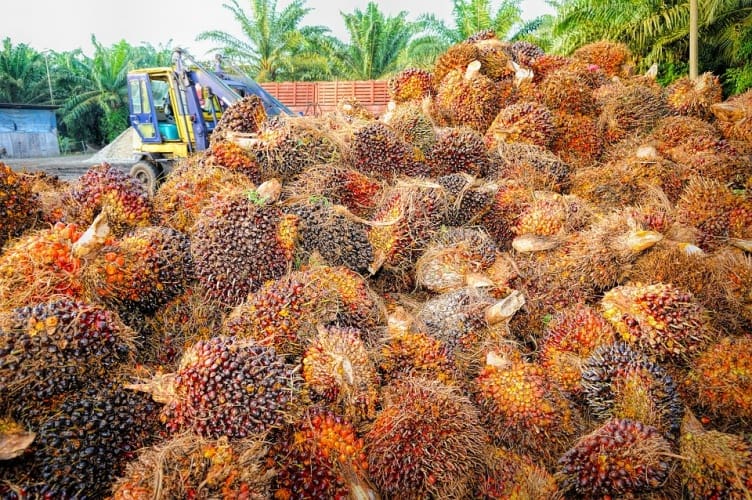
Malaysia is the world’s second-largest producer of palm oil, which is used in countless household products and foodstuffs. The country’s 400 odd mills produce massive amounts of waste including kernels and husks from pressed fruits, discarded branches and wastewater known as Palm Oil Mill Effluent (POME).
In recent years, palm oil has come under increasing scrutiny for the deforestation and environmental damage associated with its production. While questions remain over its long-term sustainability, reducing the industry’s short-term environmental impact is paramount. Working with local Malaysian partners, the researchers built a zero-waste management system for the mills. The pilot plant, known as the Integrated Waste Recovery and Regeneration System (REGEN), converts all solid biomass waste and POME into building materials and bio-energy.
“Once it is commercialised, our technology will enable palm oil processing facilities to turn oil palm fronds, trunks and empty fruit bunches into dried long fibre for matting, pallets, briquettes and biofuels,” said project lead Professor Denny K S Ng, from Nottingham’s Faculty of Engineering in Malaysia.
“We can also use the palm debris to make a bio-fertiliser that retains the nutrients from the palm tree, cutting chemical use and creating healthier soil. This in turn improves the palm fruit yield and the quality of the crude oil."
Alongside the biomass processing technology, the team has also been investigating how to recycle POME. As a raw effluent, it poses considerable environmental risks and must be heavily treated before being released into the water cycle. Led by Professor Mei Fong Chong from the university's Department of Chemical and Environmental Engineering, the researchers developed the Integrated Anaerobic-Aerobic Bioreactor (IAAB). The process turns the liquid effluent into water for reuse in the palm oil milling process and which can also be further purified into clean drinking water. Additionally, by digesting the organic matter in the POME, the reactor creates a methane by-product which is harvested and purified for use as a biofuel.
“Around 30 million tonnes of wastewater is produced annually in the palm oil production process,” said Professor Chong.
“Up to now most mills use a conventional ponding system for the treatment of the effluent but this system is polluting to the environment. The biogas it releases contributes to our global CO2 emissions. Our new IAAB technology processes the effluent efficiently and cleanly, and harnesses a valuable renewable energy source into the bargain.”
REGEN is part of the university’s Centre of Sustainable Palm Oil Research (CESPOR) based at the Malaysia campus near Kuala Lumpur.











BEAS funding available to help businesses cut energy costs
And not a moment too soon, if the following exchange broadcast last Friday 13th June, on the Radio 4 ´Rare Earth´ program (link below, ~ 17 minutes...